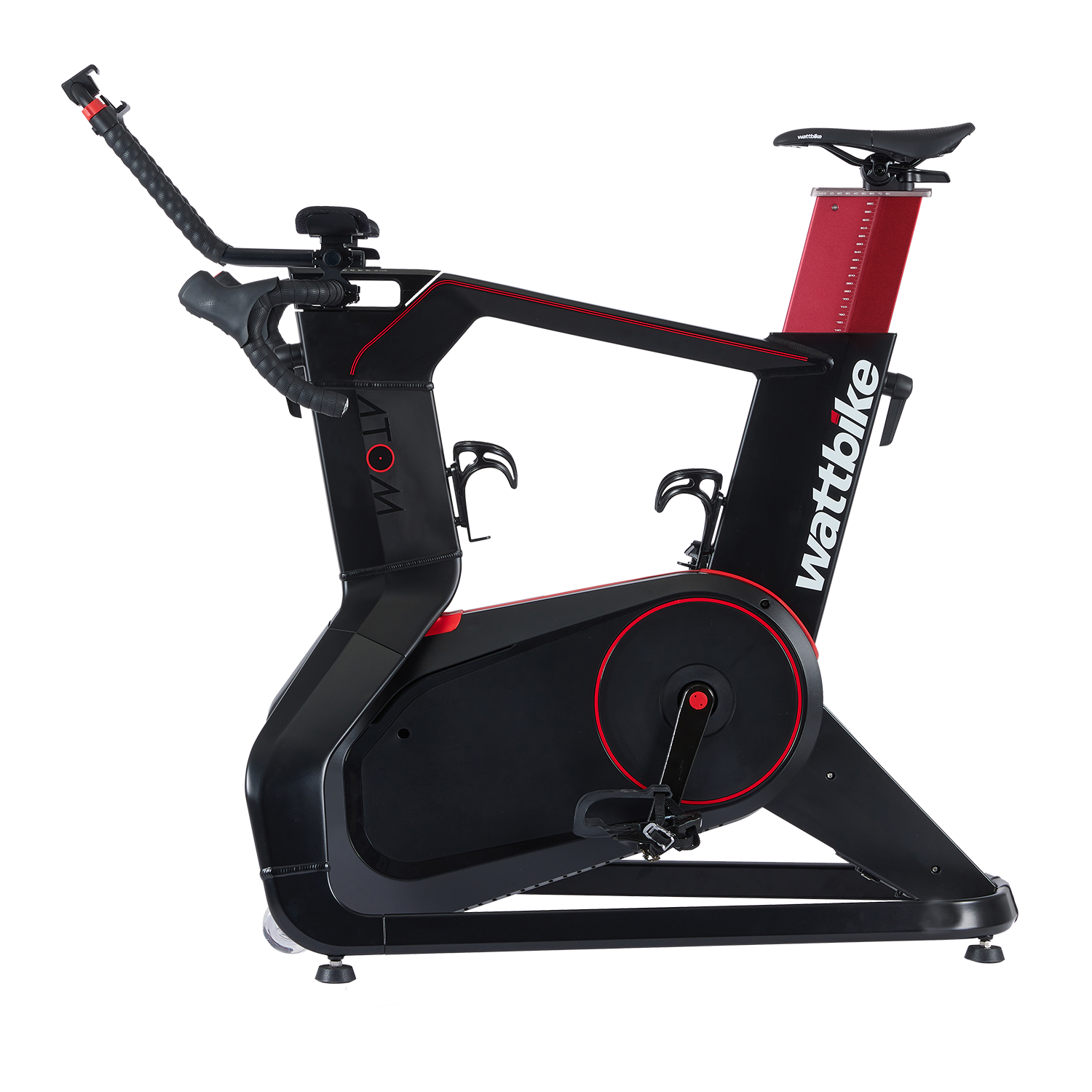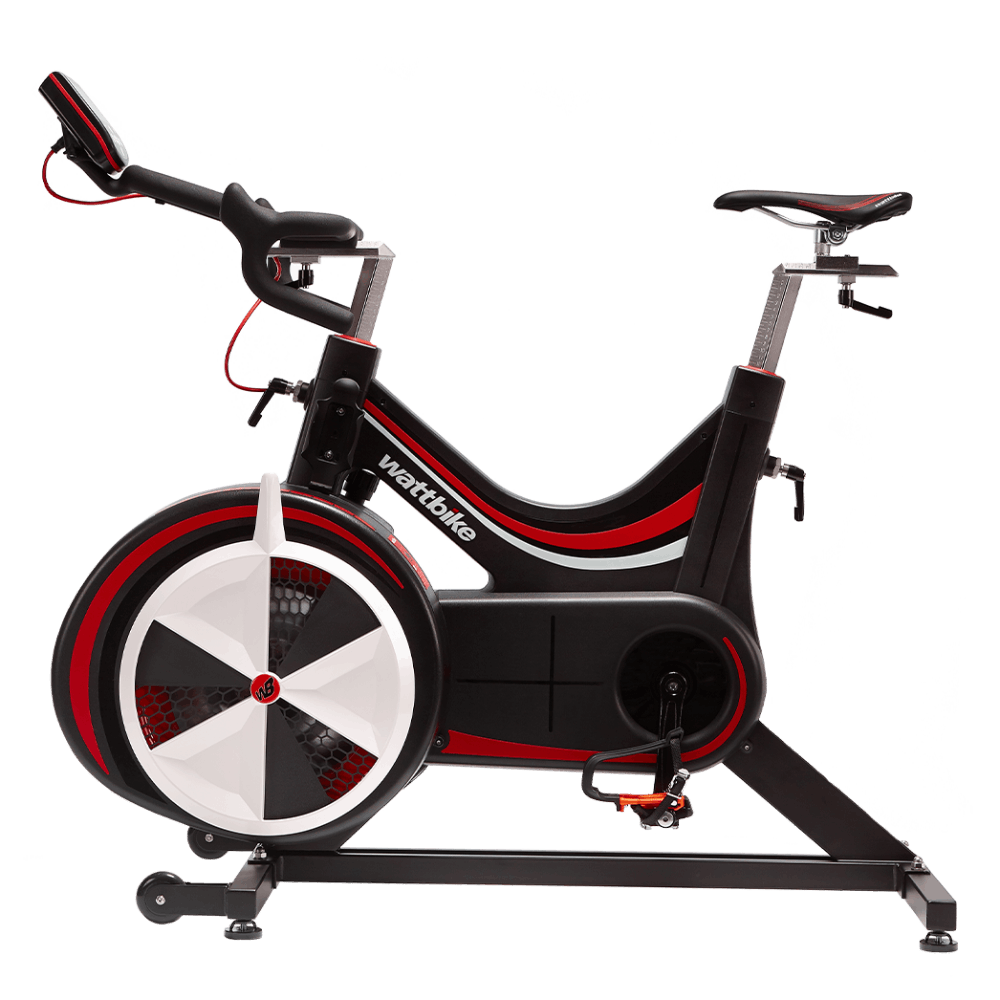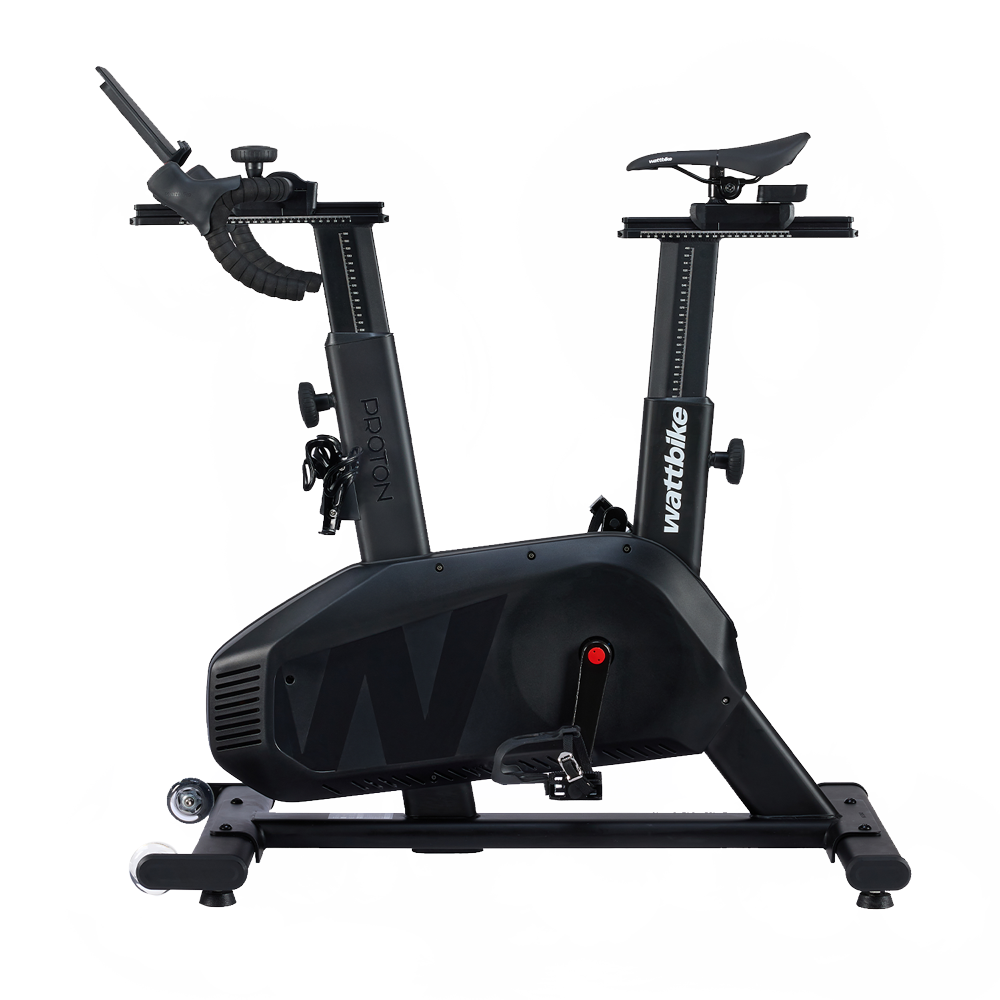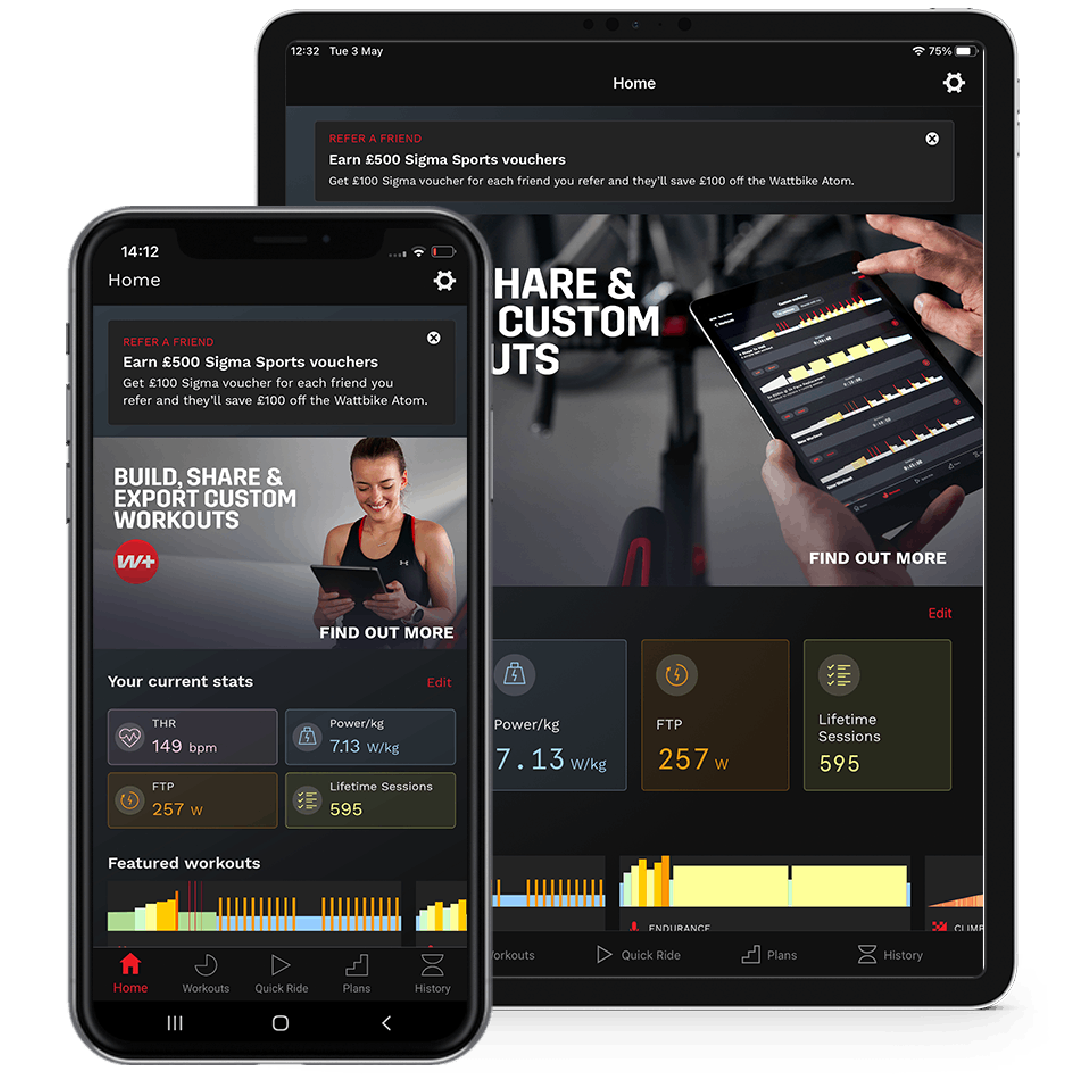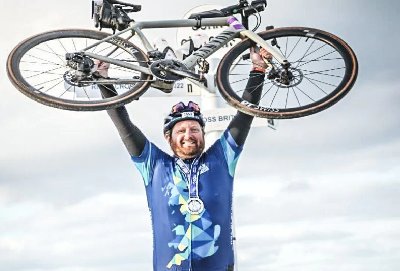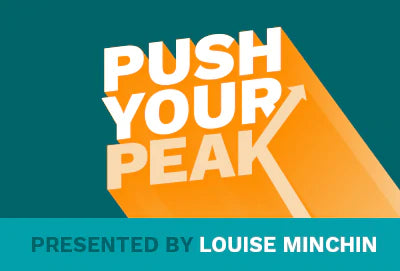Your Cart is Empty
shop
training & apps
support & services
news & information
Getting the most out of your indoor miles for outdoor gains
April 08, 2021 3 min read

The spring sunshine and longer evenings are upon us, and it’s definitely that time of year to start planning those outdoor adventures. But, we don’t want to forget the power of an indoor training session and how effective this can be in your outdoor riding.
Research has shown that an hour of training indoors is nearly twice as effective as outdoor riding, this supported by coach Matt Rowe in an article with BikeRadar who says “an hour on a turbo is worth at least 1.5 hours, if not more on the road”. This is because on an indoor bike we are continuously producing the same powers through the pedals, with limited rest, whereas riding outdoors there are many external factors slowing us down including traffic lights, road layout, cars etc., which changes the tension applied through your muscles and ultimately the power of your strokes.
This week, we caught up with Health & Fitness lead, Adam Daniel to put a bit of colour around the topic and give you some great tips to indoor riding.
Why is it important to incorporate indoor training sessions with your outdoor miles?
“My philosophy to training indoors is the more effectively you can train inside the more fun you will have outside.
“Indoor training allows you to follow a specific training or workout that you can’t always hit on the road due to variables such as traffic, wind, rain, hills, and other cyclists, which means you can really target certain power outputs to give a specific fitness adaptation, whether that’s focussing on your endurance, sprinting, time trials or climbing.
“The other reason why riding inside will benefit your outdoor riding is that indoors you can focus specifically on technique, making sure you are maximising each pedal stroke, so when you hit the roads you have greater muscle recruitment and energy efficiency, to smoke your cycling mates when you hit the road.”
What are the benefits of fitting in short high intensity sessions each week to supporting your power output on the roads?
“During the intense bouts of work (15-40secs), you will be around your lactate threshold (the point at which your muscles begin producing lactate as a byproduct of anaerobic respiration) When you produce lactate at a faster rate than it can be utilised, it’s pretty much game over for your performance. Your muscles’ ability to contract becomes significantly lower and you will be forced to slow down, maybe even stop, until lactate can be cleared.
“We therefore want to teach your body to utilise and clear lactate as quickly as possible, which is why you’ll want to take short rests after each interval. During the active recovery your heart rate will drop, which clears the lactate and allows you to make another effort. Over time, your body will become efficient at clearing lactate, and you will be able to hold a faster pace for a longer period of time
What midweek workouts on the Wattbike Hub would you recommend completing to make those longer rides a little easier?
“To support your weekend outdoor rides, you ideally want to do three indoor sessions a week, one endurance/tempo session, one sweet-spot style session and one HIIT style.”
- Cyclist Pyramid Endurance > Endurance Category:Designed to improve your endurance and robustness with a combination of shorter and longer intervals
- 30/30 Up and Unders 10s > Speed Category:This session will increase your FTP and ability to respond to sudden changes in space when you’re working hard
- 60:30s > HIIT Category:This workout is only 25 minutes long and is great for working on your ability to respond to quick changes in pace
What would you recommend after a long outdoor ride? How can the Wattbike aid your recovery rides?
“A Wattbike session is brilliant for recovery because you can work at the exact power needed to promote recovery and flush the legs, without the inconvenience of hills, wind or teammates to make you work harder than needed if you were to ride outside.
“A good recovery session is anything from 30-60 mins at 50-60% with a “rev up” every 5 mins for 20secs. A “rev up” is just a high cadence, low resistance effort to promote leg speed and blood flow.”
Also in Training

Off-Feet Conditioning: Why the Bike Is a Game-Changer for Hybrid Racing
February 13, 2026 4 min read
Hybrid racing events likeHYROX demand more than strong run splits - they require a powerful aerobic engine that can sustain output across repeated strength stations. For many athletes, especially those from a strength background, running becomes the limiting factor due to joint stress and recovery demands. Structured off-feet conditioning offers a smarter solution. Through controlled bike training, athletes can build aerobic capacity, target key intensity zones and increase conditioning volume without added impact. That’s whyWattbike andThe Hybrid Racer are helping hybrid competitors train with greater intent, durability and long-term progression.

Blue Monday: How to Stay Motivated and Build Fitness Habits That Last
January 16, 2026 3 min read
Blue Monday marks the point where motivation fades and fitness goals are tested. But long-term progress isn’t built on motivation alone. Discover how habit formation, structure and smarter training with the Wattbike Hub App can help Wattbikers stay consistent and committed. Long after January enthusiasm disappears.

Why Benchmarking Matters
December 29, 2025 5 min read
Ever wonder why some athletes make rapid gains while others plateau? The secret isn’t just hard work, it’s benchmarking. Without knowing your starting point, training can be guesswork. The right test, from an FTP or ramp test for endurance to short maximal efforts for power, gives you the data to train smarter, not harder. Benchmarking transforms every session into a targeted, purposeful workout, accelerates progress, and ensures recovery is effective. Plus, regular re-testing keeps your training in sync with your improving fitness, so you stay ahead of stagnation and build sustainable, long-term performance. Discover how to train with clarity, confidence, and measurable results.
Get the latest!
News, training tips, offers and more, straight to your inbox.



